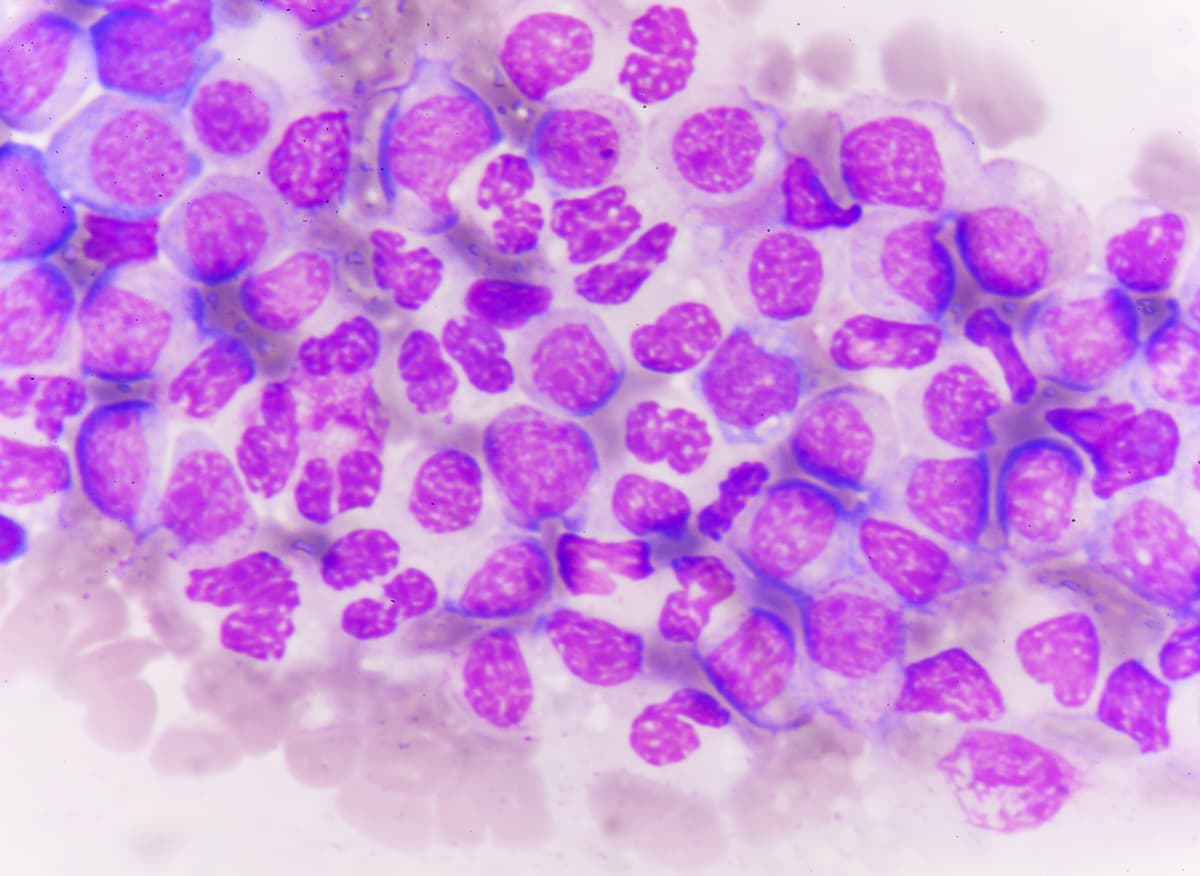Hairy Cell Leukemia Drug Moxetumomab Pasudotox-tdfk to be Withdrawn in the United States Market
Moxetumomab pasudotox-tdfk, approved as a treatment for relapsed/refractory hairy cell leukemia in 2018, will be withdrawn from the United States market in July 2023.
Moxetumomab pasudotox-tdfk (Lumoxiti), a treatment for patients with relapsed/refractory hairy cell leukemia (HCL) who had received at least 2 prior systemic therapies, including treatment with a purine nucleoside analog (PNA), will be withdrawn from the United States market in July 2023, according to a letter from AstraZeneca.1
The company will request returns of moxetumomab pasudotox packs from distributors beginning in August 2023, at which time a halt in distribution will also be advised. Product supply to physicians will also end at that time, and the company declared that clinicians should not initiate any new treatment with the drug, effective immediately.
Alternative therapies for hairy cell leukemia following the eventual withdrawal of moxetumomab pasudotox include vemurafenib with or without rituximab and ibrutinib.

The withdrawal is not due to safety or efficacy concerns, according to the company, but rather due to insufficient use. Following its FDA approval in September 2018, moxetumomab pasudotox has had a notably low clinical uptake.2 This was attributed to availability of other therapeutics and potentially the complex process of administering treatment with the agent, toxicity prophylaxis, and needs for safety monitoring.
“There has been a very low clinical uptake of [moxetumomab pasudotox] since FDA approval on September 13, 2018, due to the availability of other treatment options and possibly due to the specialized complexity of administration, toxicity prophylaxis and safety monitoring needs for patients,” the letter explained.
Other existing therapies should work to mitigate any negative impact of the withdrawal. These alternative treatments for HCL include vemurafenib (Zelboraf) alone or in combination with rituximab (Rituxan) and ibrutinib (Imbruvica). After progression, second-line treatment options include bendamustine (Bendeka) and rituximab, rituximab monotherapy, and splenectomy
The FDA approved moxetumomab pasudotox for patients with relapsed/refractory hairy cell leukemia who had received at least 2 prior systemic therapies, including treatment with a purine nucleoside analog (PNA). The basis of the approval was based on data from the phase 3 Study 1053 (NCT01829711) examining the CD22-directed cytotoxin in 80 patients with histologically confirmed HCL (n = 77) or an HCL variant requiring treatment based on presence of cytopenias or splenomegaly (n = 3).
Treatment with moxetumomab pasudotox resulted in a durable complete response (CR) rate of 30% (n = 24; 95% CI, 20%-41%) and the overall CR rate was 41% (n = 33; 95% CI, 30%-53%) by blinded independent review.
The most common adverse effects (AEs) of any grade—those which affected at least 20% of patients—were infusion-related reactions, edema, nausea, fatigue, headache, pyrexia, constipation, anemia, and diarrhea. The most common grade 3/4 AEs—those which affected at least 5%—included hypertension, febrile neutropenia, and hemolytic uremic syndrome (HUS). Twelve patients (15%) permanently discontinued moxetumomab pasudotox due to AEs, most commonly HUS (5%). Toxicity-related dose delays, omissions, or interruptions were most due to pyrexia (3.8%).
Patients received intravenous moxetumomab pasudotox at 0.04 mg/kg over 30 minutes on days 1, 3, and 5 of each 28-day cycle for a maximum of 6 cycles or until documentation of CR, disease progression, or unacceptable toxicity. This was also the recommended dose following FDA approval; the agent was not recommended for patients with severe renal impairment.
The letter also announced the cancellation of the post-marketing PROXY study (NCT04125290) of moxetumomab pasudotox.
References
- Important information for Lumoxiti (moxetumomab pasudotox-tdfk) for injection, for intravenous use – permanent withdrawal for Lumoxiti from the US Market. Dear Healthcare Provider Letter. AstraZeneca; November 18, 2022. Accessed January 11, 2023. https://bit.ly/3Ha6ZlZ
- FDA approves moxetumomab pasudotox-tdfk for hairy cell leukemia. News Release. FDA. December 3, 2018. Accessed January 16, 2023. https://bit.ly/3XBY6XM